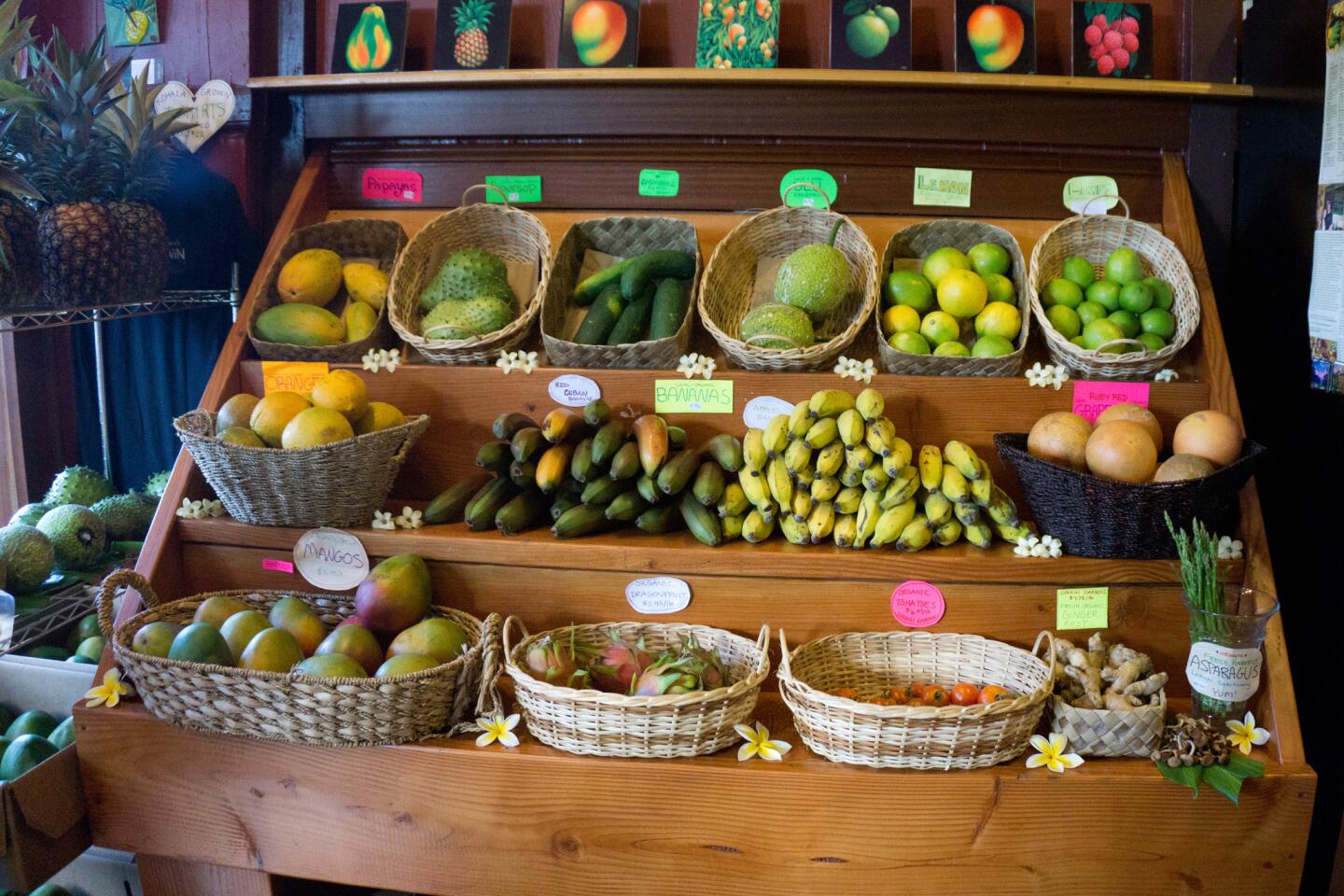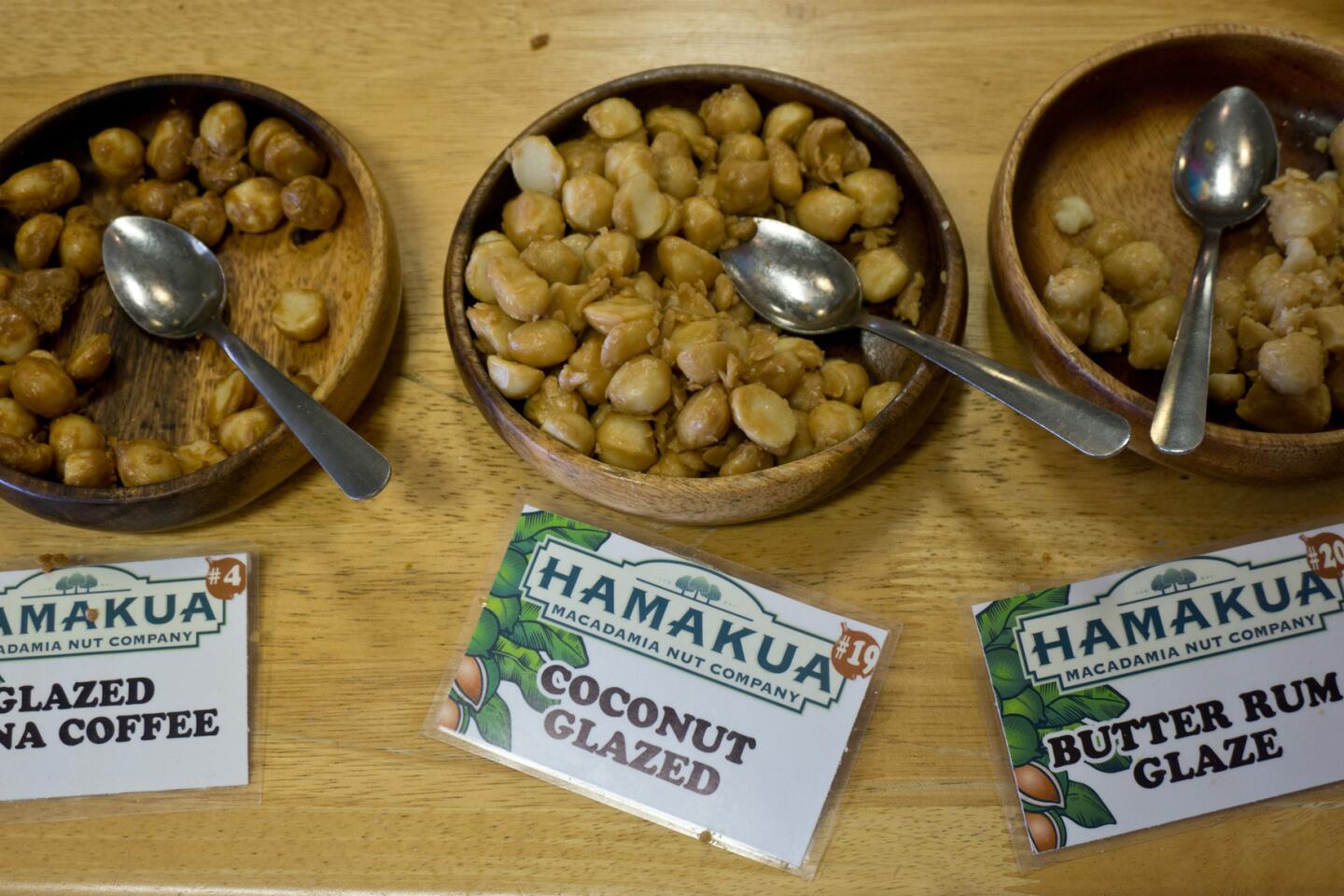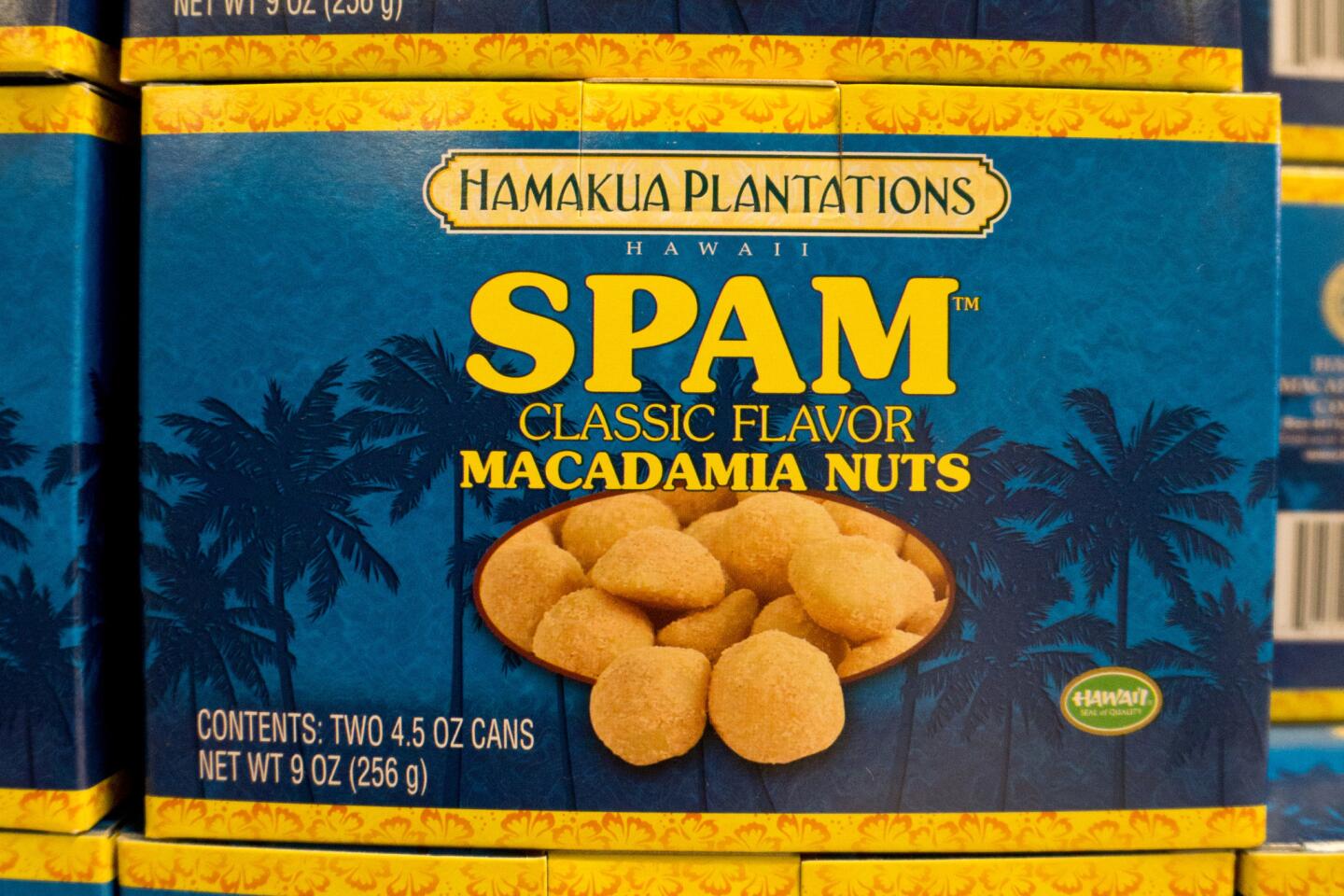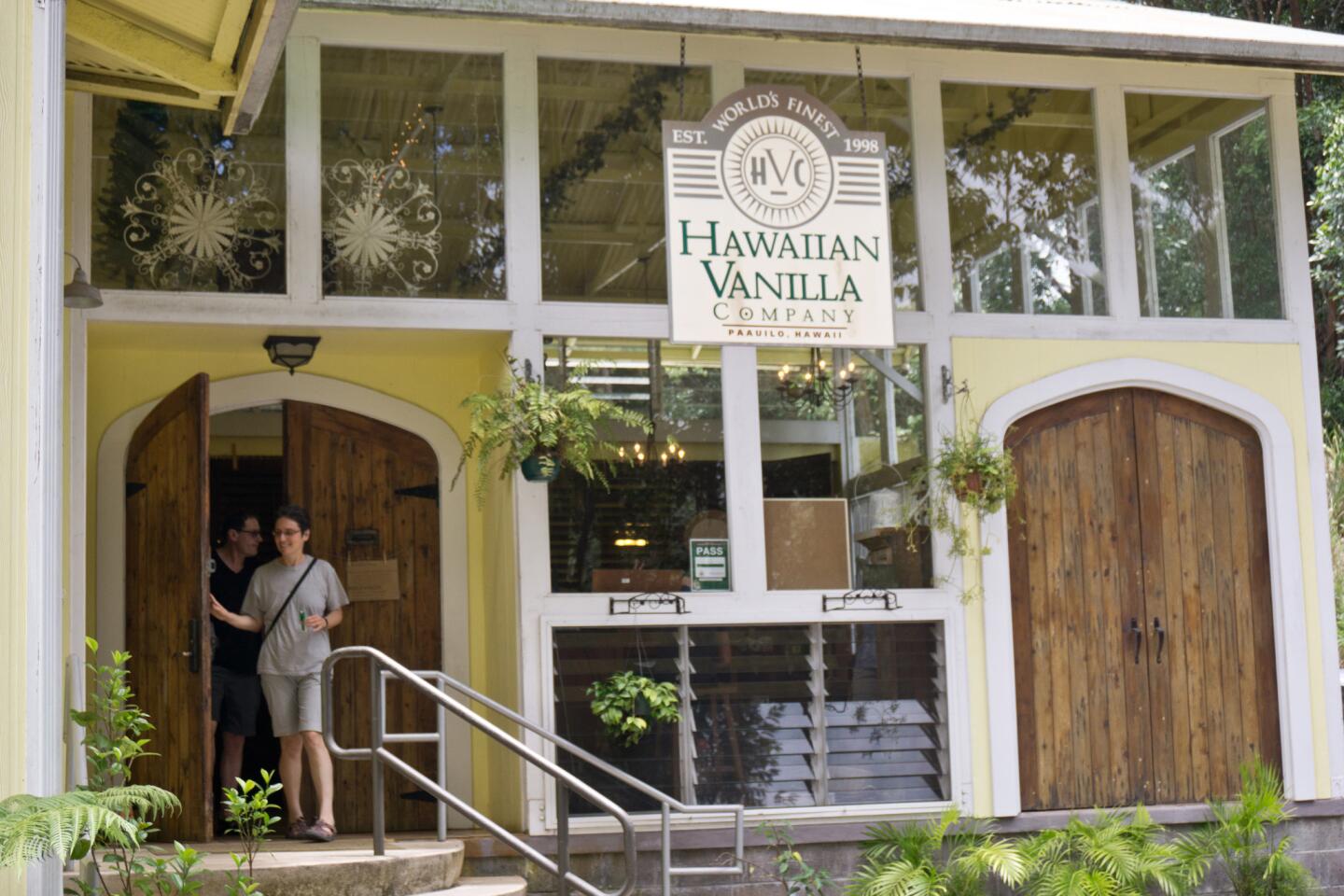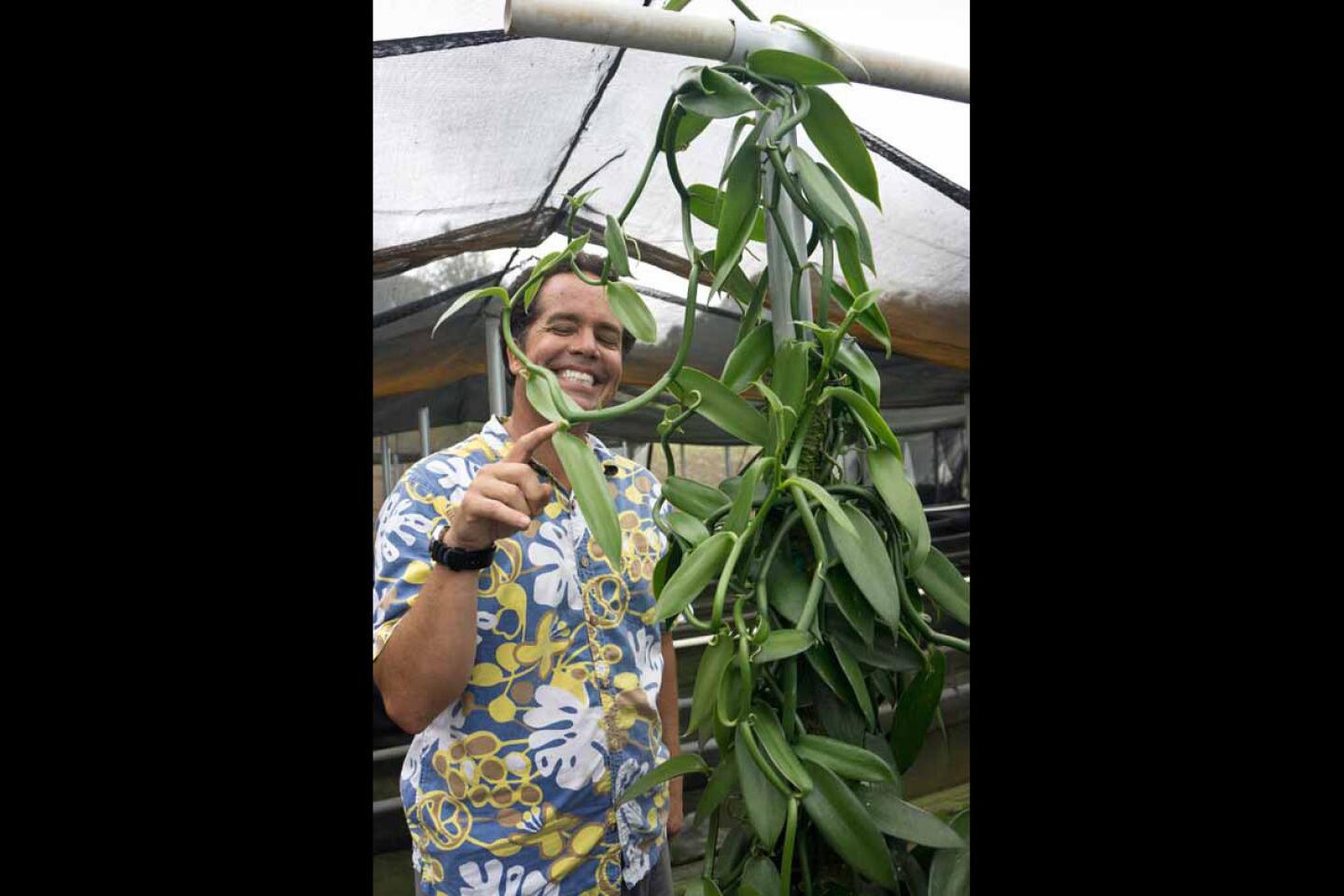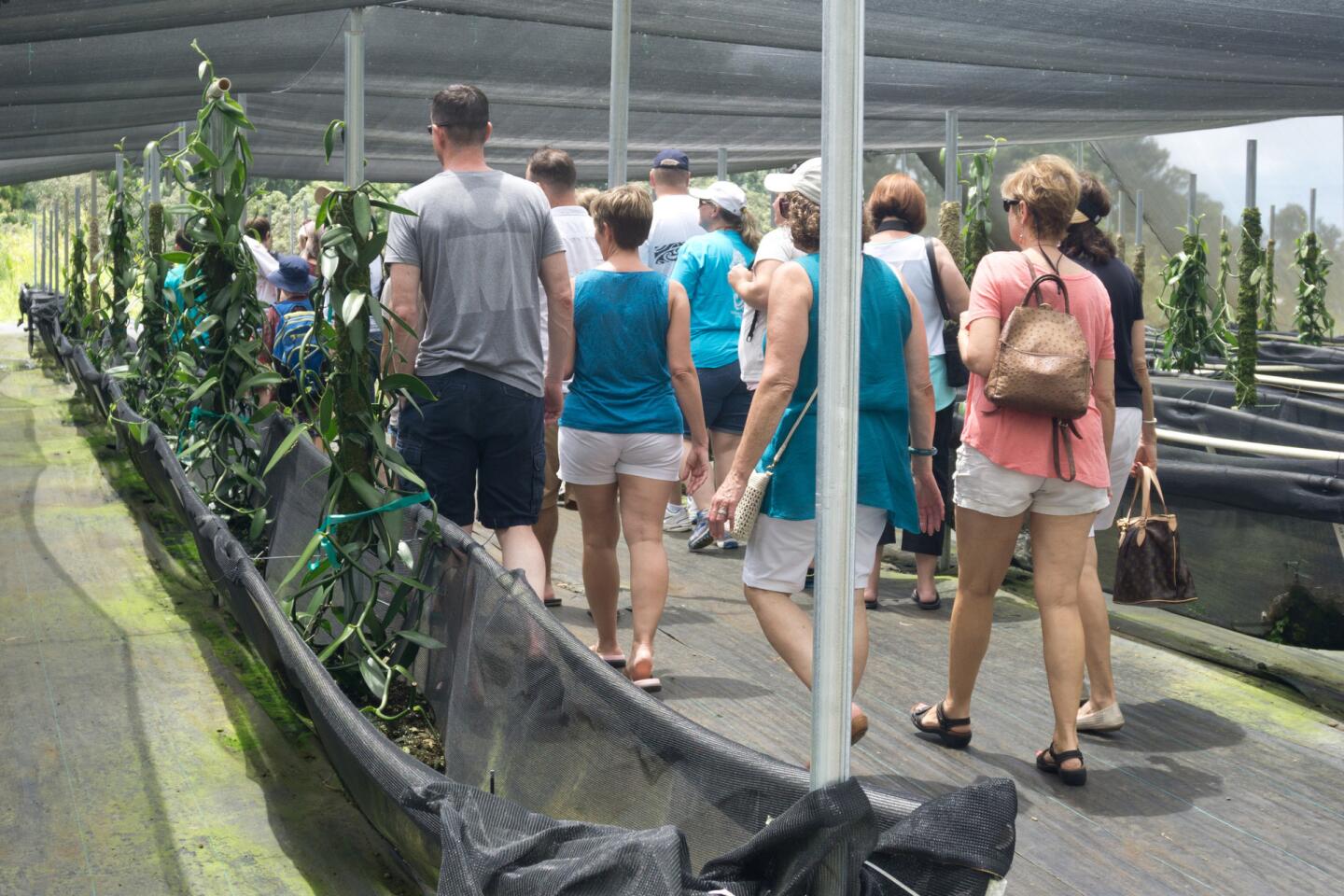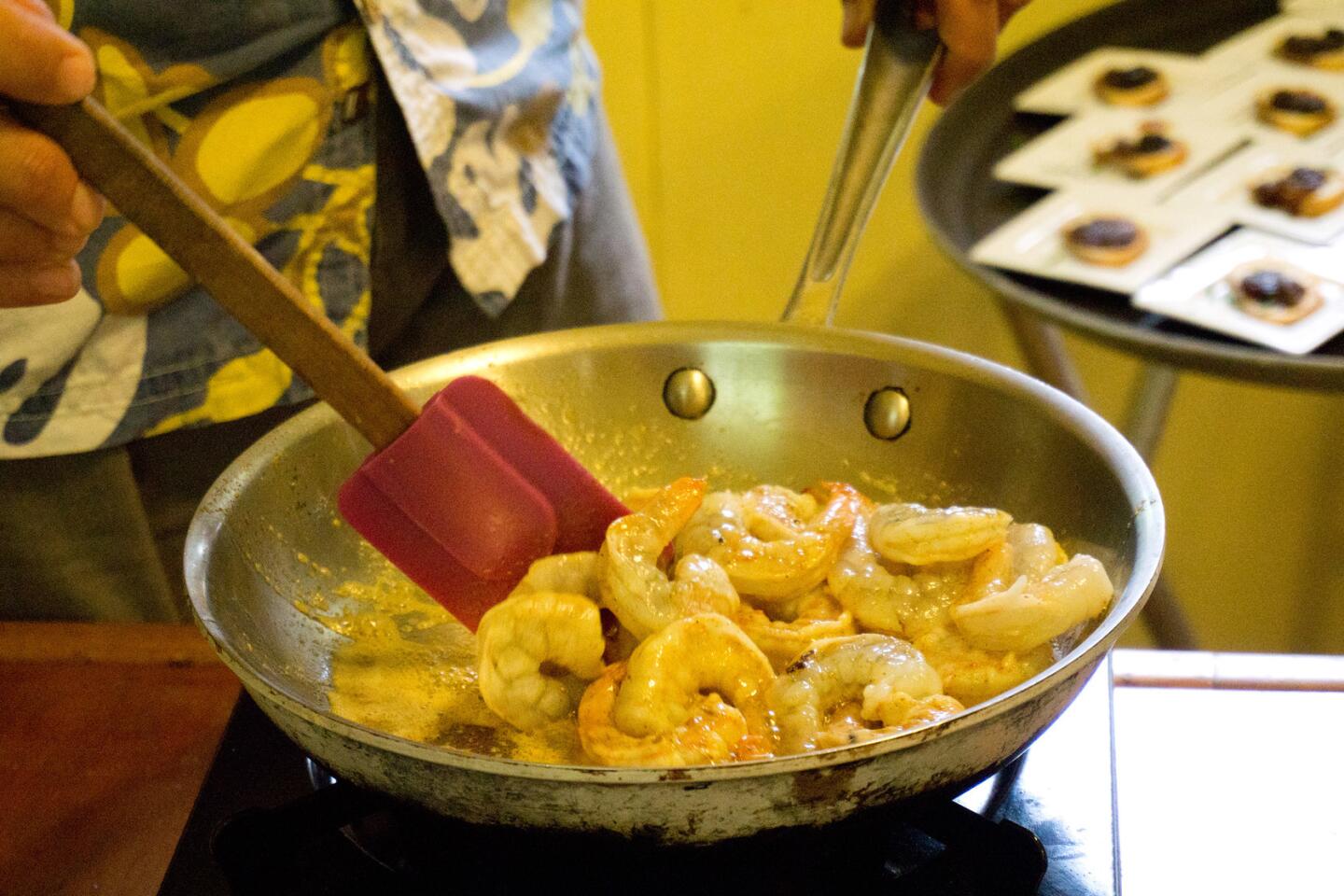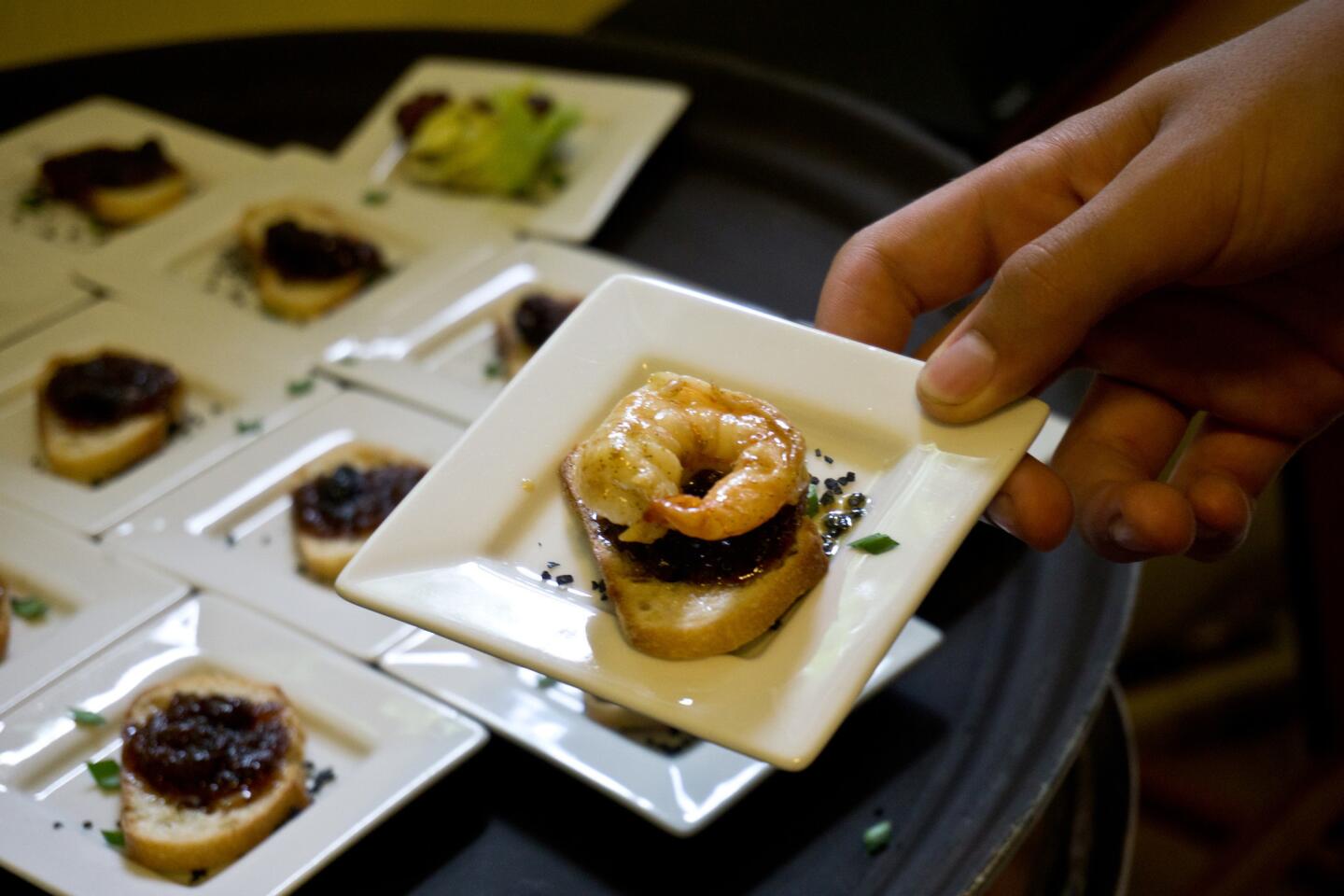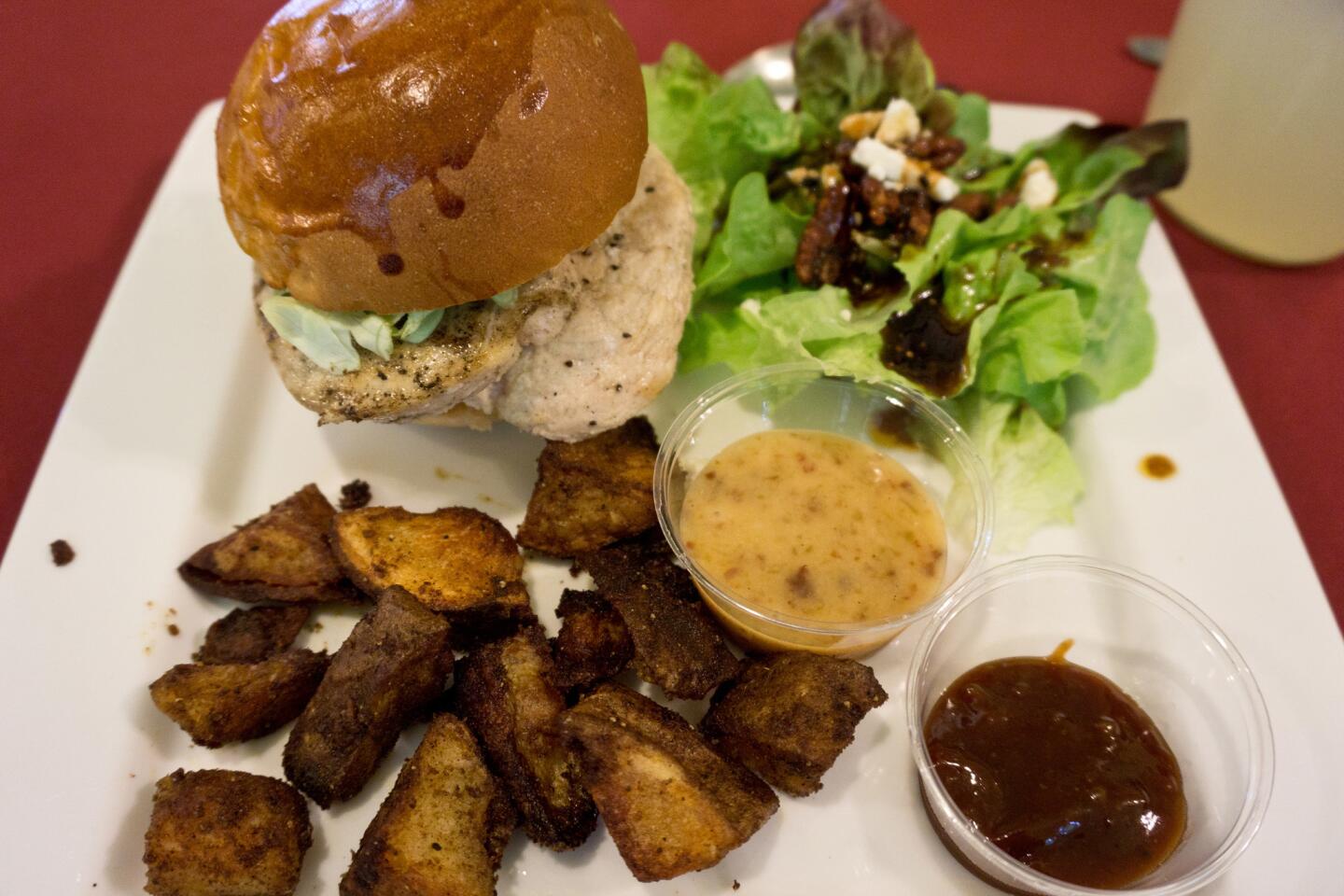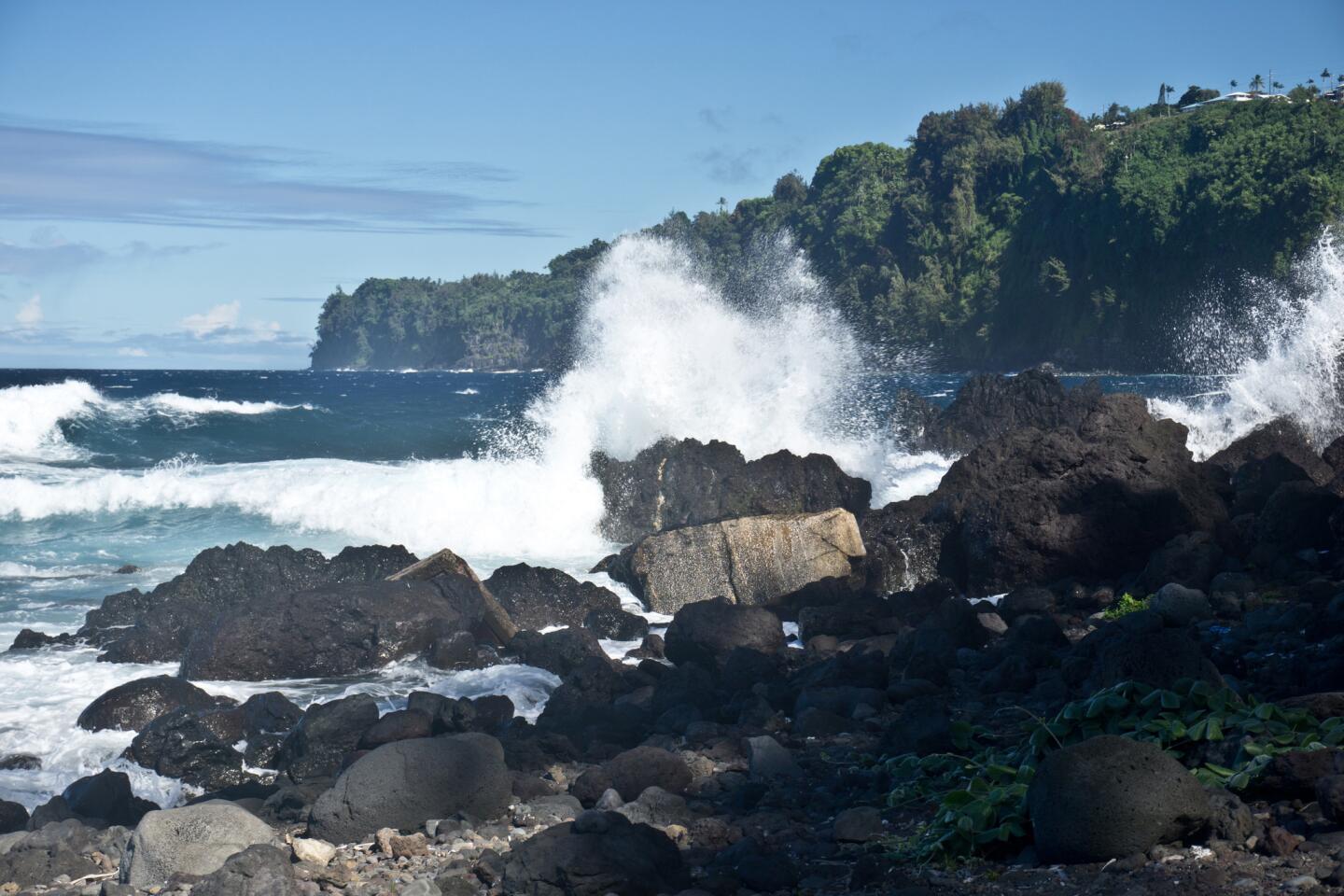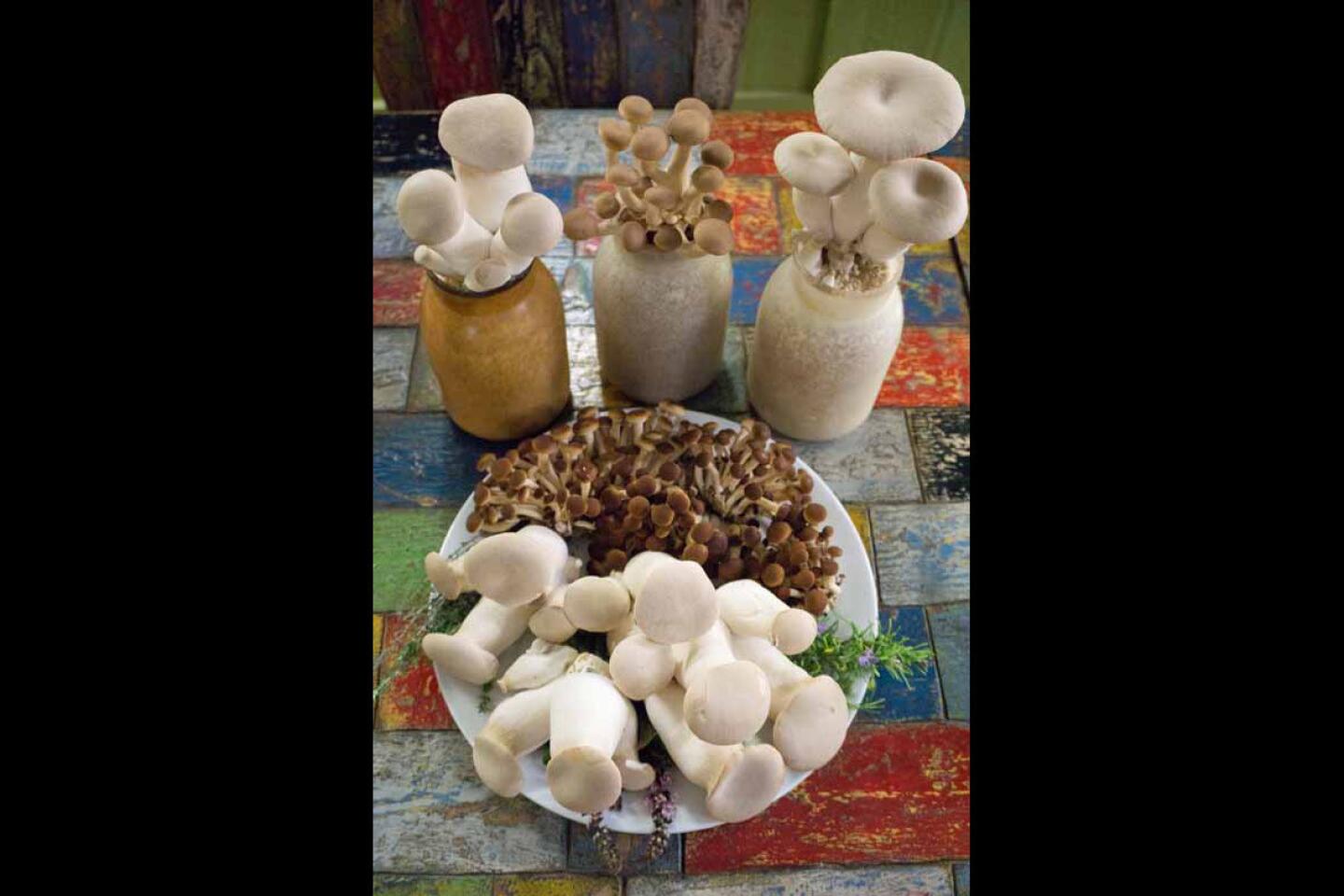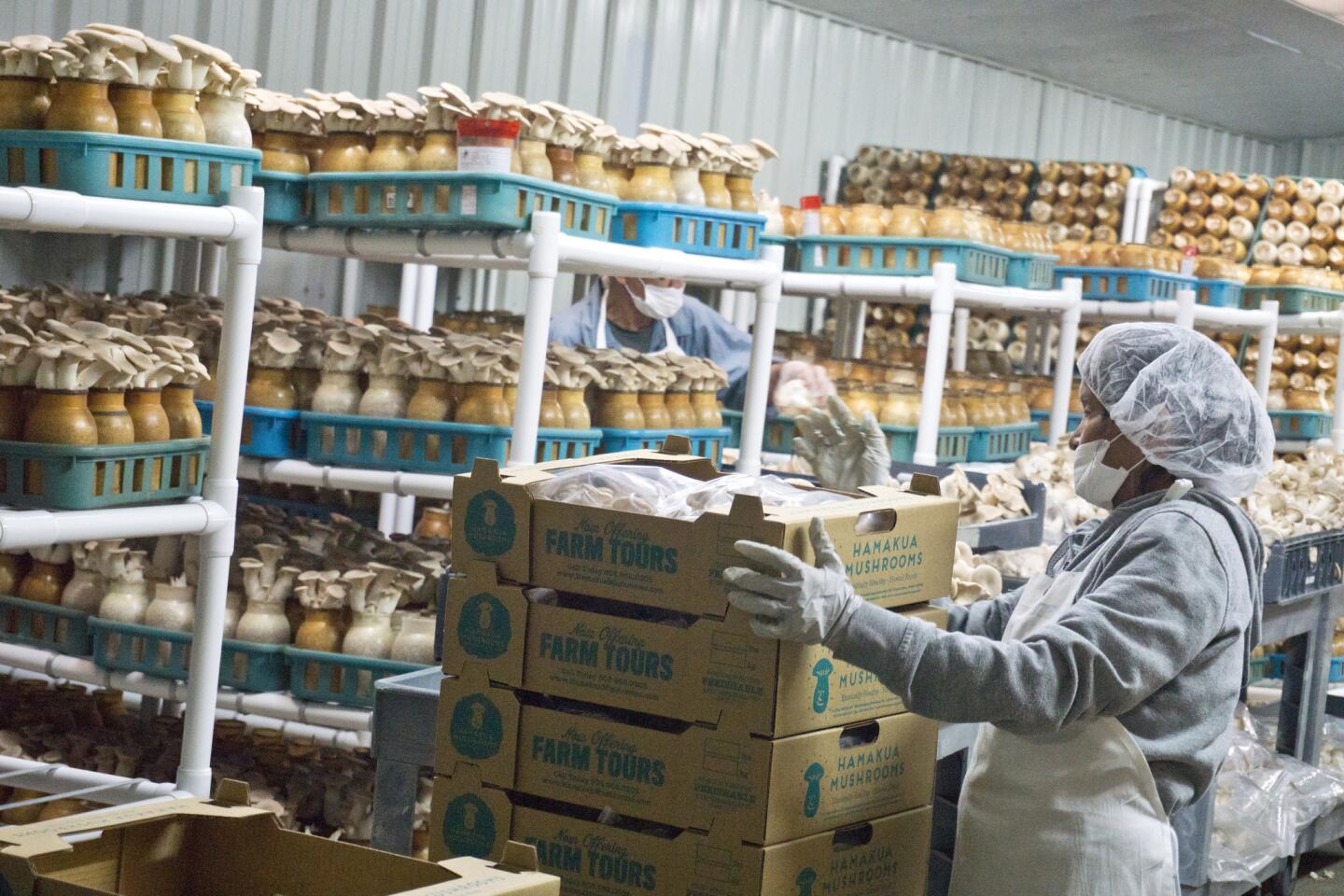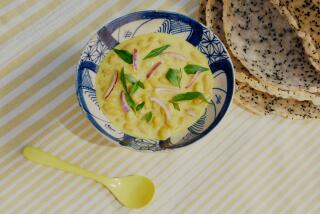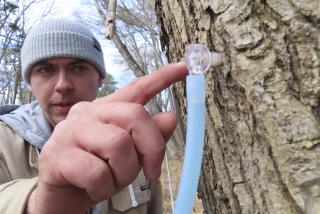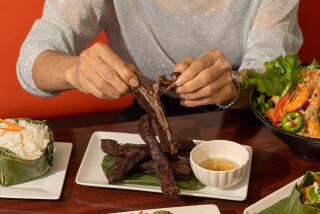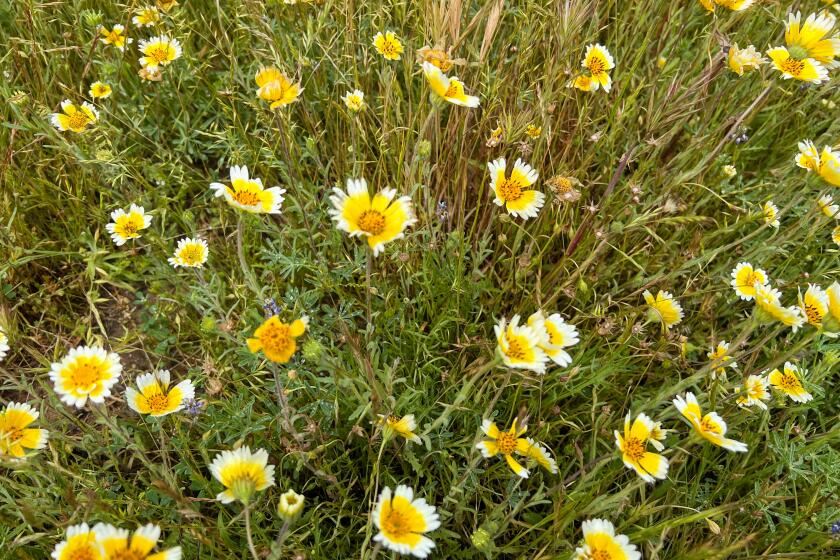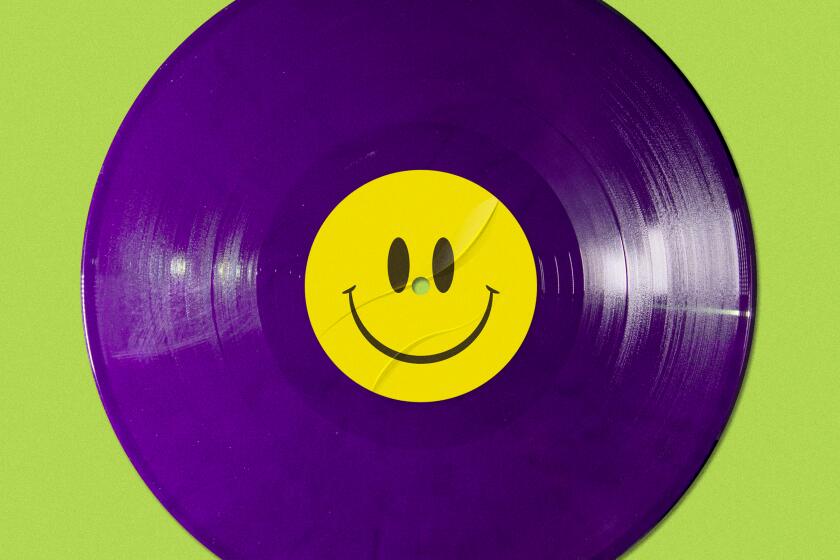Create your own food lover’s tour of Hawaii’s Big Island
There’s nothing vanilla about Jim Reddekopp other than everything he lives and breathes, of course.
Reddekopp is the self-described head bean at Hawaiian Vanilla Co., which claims to have produced the first commercially grown vanilla in the U.S.
Here on the Hamaukua Coast in the northeastern rain forest of the Big Island, he grows tropical vanilla orchids, hosts entertaining plantation tours, serves a vanilla-infused luncheon and runs an on-site vanilla products store.
The northern quarter of the island holds several intriguing places just right for a food lover’s tour: the vanilla plantation, an exotic mushroom farm, a macadamia nut factory, a grocery store selling locally grown products, organic tropical fruit stands and restaurants specializing in local fare.
My husband, Michael, and I decided to taste-test the scene.
We started about 30 miles north of Hilo, driving three miles uphill from Mamalahoa Highway on Pohakea Road toward Hawaiian Vanilla’s headquarters in Paauilo, our ears popping as we gained 2,000 feet in elevation. Reddekopp and his wife, Tracy, began their 20-acre farm, which has two acres dedicated to vanilla production, in 1998.
On the tour, our group walked to one of four shade houses holding dozens of vanilla orchid plants. Inside, Reddekopp showed how they loop the orchid vines to get maximum growth from the plants that, without flowers, look like leafy house plants.
He also demonstrated how he hand-pollinates vanilla orchids so they will grow vanilla bean pods. (It’s a tedious process.)
At the Vanilla Shoppe, guests were seated around a long dining table while Reddekopp whipped up vanilla garam masala shrimp with vanilla-pineapple chutney served on a crostini.
The official “Vanilla Luncheon” followed with vanilla lemonade; vanilla iced tea; organic salad with feta cheese and vanilla-honey peppered pecans with vanilla-raspberry balsamic dressing; roasted potatoes with vanilla-Southwest rub; and a vanilla-citrus-bourbon chicken sandwich with vanilla-caramelized onions, vanilla barbecue sauce and vanilla-mango chutney. Dessert was vanilla lilikoi (passionfruit) curd over (you guessed it) vanilla ice cream.
Although my husband (a former chef) and I initially were concerned that we might be “over-vanillaed,” we enjoyed the meal. Except in the ice cream, vanilla was a background flavor that added a comfort-food appeal to the meal.
Sauces, seasonings, teas, nuts and more were for sale in the Vanilla Shoppe; the first ingredient listed on most was “love” to show the family’s passion for its products.
Info: Hawaiian Vanilla Co., 43-2007 Paauilo Mauka Road, Paauilo; (877) 771-1771, www.hawaiianvanilla.com . Tours, tastings, luncheon ($39 for adults) and shop; reservations required. Hawaiian Vanilla also has a “vanilla cottage” for a farm stay; www.vrbo.com/585942.
Exotic mushrooms
From Hawaiian Vanilla we drove 11 miles south along the scenic Mamalahoa Highway to Hamakua Heritage Farm and its mushroom factory.
Hamakua grows pioppini and alii (also called black poplar and king oyster, respectively) mushrooms in what looks like mayonnaise jars in bright rooms with skylights and grow lights.
“Unlike most mushrooms, our mushrooms don’t sit in the dark and eat manure,” said tour coordinator Jane Holmes. “Our mushrooms are enlightened.”
The mushrooms feed on a growing material, or “substrate” of ground-up eucalyptus, corn cobs and wheat germ. “Our factory smells like a bakery,” she said.
Hamakua has partnered with local companies to incorporate mushrooms in foods such as lavash, butter cookies, brownies, “chocorooms,” mango and lilikoi butters and even coffee.
“You don’t really taste the mushrooms,” Holmes said, “but they add the rich, buttery taste of umami.”
Of course, the gift shop has a variety of colorful mushroom-shaped earrings.
Info: Hamakua Heritage Farm/Hamakua Mushrooms, 36-221 Manowaiopae Homestead Road, Laupahoehoe; (808) 962-0017, www.hamakuamushrooms.com Tours, tastings and shop; tour reservations required.
Macadamia nuts
Hawaiians grew taro, sweet potatoes and sugar cane on the Kohala Peninsula on the northern tip of the island long before Europeans arrived. We headed there to see what’s growing now and to take a beach-to-mountain scenic loop.
Our first stop was at the Hamakua Macadamia Nut Co. (not related to the mushroom folks) in Waimea. A 10-minute video showed the intricacies of extracting the rich nuts out of their extremely hard shells and sorting them into whole nuts and the pieces used for trail mix or pressed for oil.
On the self-guided tour we looked through large windows as workers were making nut brittle by spreading melted butter and sugar with macadamias onto marble slabs.
Other workers poured the nuts into the “flavoring panner,” which looked like a small cement mixer, to coat them with any of nearly a dozen flavors, including wasabi, island onion, garlic butter and herbs, black peppah and chili peppah. There were even Spam-flavored macs, which come in boxes that resemble the packaging for one of Hawaii’s favorite foods. I didn’t detect the spiced-ham flavor, but they were salty.
Our family favorite was the Kona-coffee glazed nuts, although Michael was also partial to the rum-glazed macs.
Info: Hamakua Macadamia Nut Co., 61-3251 Maluokalani St., Kawaihae; (888) 643-6688, www.hawnnut.com.
Market and farm tours
As we drove north from the dry coastal area we entered wetter farm country. Family-run Kohala Grown Market in Hawi — a colorful, low-key village — sells only fruits and vegetables grown on the Big Island.
The day of our visit the boutique market was offering mangoes, ulu (breadfruit), red Cuban bananas and other tropical fruits as well as organic oranges, lemons and limes. The lime was the largest, most flavorful one I’ve ever had.
The market’s Kohala Grown Farm Tours lead excursions to visit farms that produce, among other foodstuffs, jackfruit, taro (for poi), organic vegetables, cacao (for chocolate), coffee and spices. The tours end with lunch at Sushi Rock (not associated with mainland cafes with a similar name), which uses organic and local ingredients as much as possible, including fish, produce and goat cheese.
Info: Kohala Grown Market and Kohala Grown Farm Tours, 55-3419 Akoni Pule Highway, Hawi; (808) 937-4930, www.kohalagrownfarmtours.com. Sushi Rock, 55-3435 Akoni Pule Highway, Hawi; (808) 889-5900, www.sushirockrestaurant.net
More to Read
Sign up for The Wild
We’ll help you find the best places to hike, bike and run, as well as the perfect silent spots for meditation and yoga.
You may occasionally receive promotional content from the Los Angeles Times.
